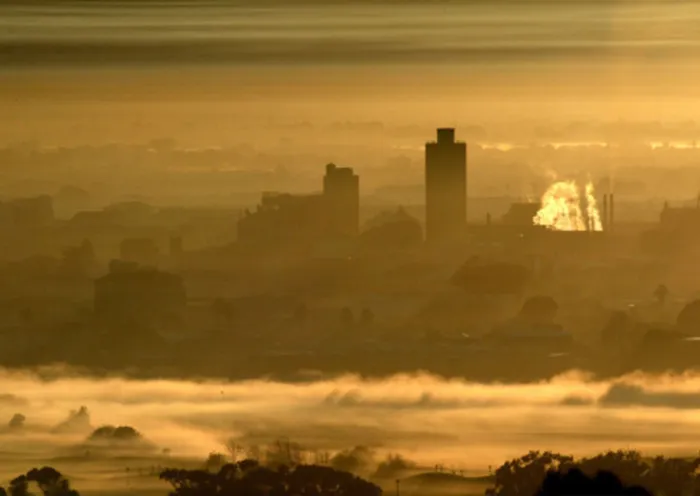Exhaust fumes are slowly killing us, say experts

Early morning smog hangs in the air as dawn breaks over Cape Town. Picture: Reuters Early morning smog hangs in the air as dawn breaks over Cape Town. Picture: Reuters
Cape Town - The near-collapse of the public transport system in Cape Town has seen a mass migration to petrol and diesel-powered vehicles that emit harmful exhaust fumes into the air, which experts say is slowly killing us.
At the end of January, there were more than 1.2 million registered vehicles in Cape Town, according to the electronic National Administration Traffic Information System (eNatis).
Add to this number the 46471 unlicensed vehicles and altogether you have 1334219 vehicles in the city. By comparison the rest of the province put together has only 678123 registered vehicles.
Richard van Zyl-Smit a consultant pulmonologist in the division of pulmonology and department of medicine at UCT and Groote Schuur Hospital said: “Vehicle exhausts have an extensive impact on public health. Firstly, as general pollutants of particulate matter - PM10 and PM2.5 - these are linked to respiratory and cardiovascular disease and account for much of the smog seen over the city.
“Large amounts of noxious gases such as carbon monoxide and nitrogen dioxide are produced - especially by poorly maintained vehicles,” said Van Zyl-Smit. He added that diesel emissions, in particular, have been linked to asthma flare-ups and poor lung health and development in children.
As to whether all these vehicles and their emissions were actually killing Capetonians, Melita Steele, senior climate and energy campaign manager of Greenpeace Africa, said: “It is fair to say that pollution from our cars can result in premature death and disease.”
Maia Lesosky of the division of epidemiology and biostatistics at the School of Public Health and Family Medicine at UCT said: “Chronic exposure to high levels of air pollution is one of the things that is killing us - and vehicle emissions are a major contributor to that exposure.
“Although I probably wouldn’t use the phrase (that our cars are killing us), I guess that I agree.”
Van Zyl-Smit said it was “a little harsh to say our cars are killing us,” but he added: “They are certainly hurting us - most of the blame should be on trucks, badly maintained and high-emission buses and cars.”
The doctor said: “On days with high pollution - respiratory patients suffer, especially the patients with asthma. The pollution also contributes to heart disease and stroke - but if we got rid of all the cars - we would not stop all heart attacks or strokes.”
The most practical alternative already in existence for Capetonians is mass public transport. With a complement of 256 MyCiTi buses operating along 44 routes during peak hours, Felicity Purchase, the City’s mayco member for transport, said: “We must encourage commuters to make use of public transport services as opposed to using their private vehicles.
“Public transport is cheaper. Also, if we can reduce the number of private vehicles on our road network, it would assist in alleviating traffic congestion, and we will all spend less time on the road.
“The MyCiTi bus service transports an average of 47025 passengers on a weekday,” said Purchase.
Riana Scott, spokesperson for Metrorail Western Cape, said the transporter has 57 operational train-sets.
“Ordinarily, the service should have 88 sets. But Cape Town residents are keenly aware that Metrorail’s service has been severely crippled over the past few years due to several incidents of vandalism, theft of copper cables and the burning of trains,” she said.
Purchase said: “Passenger rail is the most effective and affordable mode of public transport all over the world, and it should be the backbone of commuter transport in Cape Town.”
@MwangiGithahu
mwangi.githahu@inl.co.za